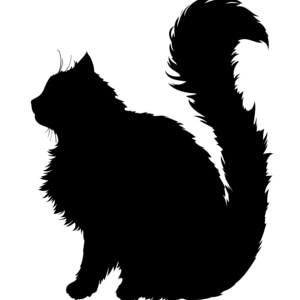“Enchantments,” the teacher confirmed to another student. “Similar to illusions, only more concrete and it applies to both living beings and objects. The most practical enchantments are those used to keep an object clean, or from breaking. You’ll find many royals and nobles pay dearly to keep items of clothing pristinely clean no matter what they do. Enchantments can also be used to make weapons more deadly. An enchantment sorcerer, for instance, may set arrows on fire that will not harm the archer, only the enemies.
“Alchemy. Potions are constantly used, whether for health or recreation or something else entirely. They are rarely sorcerers, however, because potions cannot provide much in battle. There are some who have tried to come up with potions that could make someone impervious to damage, but such potions never work.” He shook his head regretfully. “However, an alchemical mage will always find work, much like a formation mage.”
He turned his attention to the last student. “And you?”
She looked uncomfortable with the attention, muttering something he couldn’t quite hear.
“What was that? Speak up!” He ordered.
She did not look pleased, but did as he ordered anyway. “Blood magic.”
The others looked almost appalled, staring at her in shock or outright horror.
The older man took a moment to recover, and his tone was a bit hesitant when he did. “Right. Blood magic. The only kind of magic known to be able to cure diseases or heal people. But it comes at a high cost and is dangerous, often costing the mage their own life if they don’t know how to handle it well – or, if they are reckless, the lives of those around them. Blood magic is very, very tricky to master and it’s highly recommended to use it in as small a context as possible unless you have absolute mastery of it, something that is next to impossible to achieve.”
Judging by her expression, this was not the first time she’d been warned about her magic, but she seemed annoyed about it. She didn’t contradict him and ignored when the other mages all kind of shuffled a little further away from her, but I had to wonder if it bothered her. She couldn’t control what kind of magic she had an affinity for.
The older man turned and started pacing, addressing his students again. “There are other kinds of magic. Time magic, for instance. Very rare, very difficult to even begin to understand, let alone to master. Necromancy, a forbidden magic. Some do practice it, however. Spirit magic, invoking the spirits to help them. Perhaps the most controversial of all magics, because some believe it is not a real magic type, and others argue it is. Some argue they have seen their ancestors and called for their assistance, often in the form of spectral beasts or infusing an individual with temporary power. Thankfully, spirit magic has mostly disappeared in the last century, but you will occasionally find some who are interested in it.
“Now,” he looked over the young mages, “why did I ask you to speak of your affinities? Any clues?” When they all looked away and stayed quiet, he made a noise of disapproval. “Come now, nothing? Nothing at all?” He sighed in disappointment. “Fine, I shall tell you. It is important that you understand other forms of magic and learn to recognize them. If you do become a sorcerer and the opposing army also has a sorcerer, you need to know their strengths and weaknesses as well as your own. You need to know how to recognize elemental magic over illusion magic and illusion magic as opposed to enchantments. And you can start doing so now, by watching your fellow trainees and seeing how their magic differs from your own. We’ll also discuss the types that aren’t present in this group, so you can learn to recognize them, too.”
Had I not been in cat form, I might have pointed out that he left out some types of magic, which contradicted his purported intent to introduce them to various types to help them understand it. He hadn’t discussed the Arcane, of course, but he’d also left off dark magic entirely. There weren’t a lot of humans who were even capable of practicing dark magic, admittedly – it was normally a realm reserved for Others – but it was interesting to me that this instructor was entirely leaving off any potential threats from Arcane or Others as a result.
Was it intentional? Had Arthur told him not to view these people as enemies? Or did he just not respect these people enough to view them as threats?
Had he never faced a true Arcane in the battlefield? He was supposedly a sorcerer, meaning he did attend battles with the knights, but did he not understand how dangerous an Arcane could be? Had he only faced the weaker types? Druids, young bloods, things like that?
Had he ever faced an Arcane who could place an entire group of people under their control? Or someone who was impervious to damage, yet could rip them apart with ease? Did he know some Arcane couldn’t even die?
It seemed to me that the teaching mage was leaving out a very important element of the young mages’ education – the best education showed the strengths and weakness of an opponent, it didn’t ignore some opponents entirely. Even someone who wanted peace with Arcane should be aware of the threat they presented and prepared to defend themselves in an encounter.
I wasn’t sure if this one was on Arthur or on the teaching mage. It did leave questions for me, though, and questions I wanted answered.
Genevieve claimed that Arthur wanted a kingdom where all people were respected. Did that really include Arcane? Because I hadn’t seen evidence of that yet.
Arthur might be a good king in some areas, but even despite my own issue with how he’d handled my situation, this was a wrinkle I couldn’t ignore.
Just how much did Arthur really mean, and how much was words?
I’d have to wait and see.












Comments (6)
See all